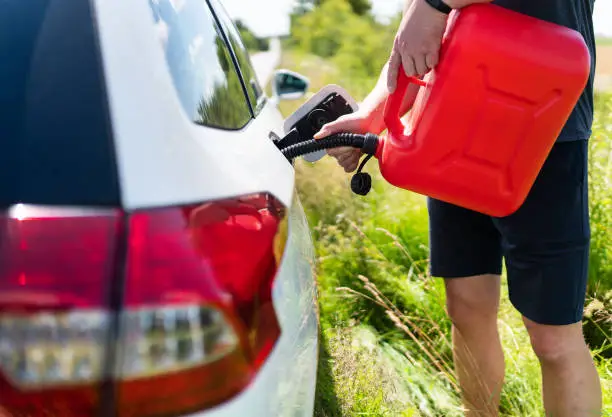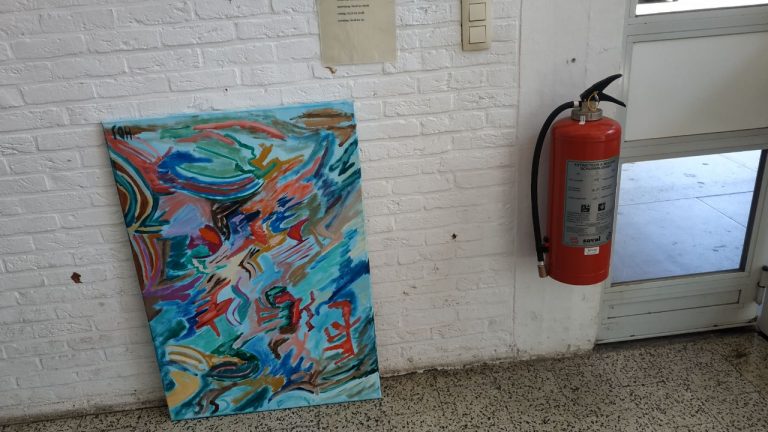Fuel transportation in EU countries
The issue of transporting petrol and other fuels in the European Union involves several aspects, such as permitted quantities, regulations and fines for violations.
Permitted fuel quantities
Petrol quantities for personal use: In the EU, it is permitted to transport no more than 10 litres of petrol in factory containers or standard canisters without special permits. However, in some countries, such as Germany, additional special packaging and compliance with certain standards may be required for transporting fuel in a car.
Petrol quantities in commercial vehicles: The maximum capacity of built-in fuel tanks of a car in the EU must not exceed 1,500 litres per transport unit.
Fuel for commercial transport: There are strict regulations regarding the transport of fuel for trucks. In most EU countries, it is necessary to have the appropriate licences, documents on the origin of the fuel and a route indicating the final destination. The quantities of fuel transported in the EU may vary depending on the type of vehicle, the design volume of the tank and its purpose.
Fuel Transport Regulations
Special requirements: The transport of dangerous goods, including fuel, is regulated by international standards (e.g. ADR). This includes mandatory safety measures and special transport permits.
Packaging: Fuel must be packed in certified containers to minimise the risk of leaks and accidents. Some fuels may require double packaging, i.e. the use of an inner and outer container to prevent leaks.
Required documents for transporting fuel in the EU
International transport licence: Required for the carriage of goods by road, including fuel, in all EU countries. The licence is issued by the European Road Transport Inspectorate and allows for both bilateral and transit transport.
Certificates: Driver’s approval certificate: Confirms that the driver has been trained in the transport of dangerous goods.
Vehicle certificate of conformity: Indicates that the vehicle complies with the regulations for the transport of dangerous goods.
CMR consignment note: This document confirms the contract of carriage and contains information about the cargo, including its name, date of shipment and details of the recipient.
Consignment note (CTN): It specifies the identification data of the cargo, hazard class, total weight and form of packaging.
Waybill: Must contain a note that dangerous goods are being transported.
Additional documents: Depending on the country of destination, declarations (e.g. EX-1 or T1) may be required for goods produced in the EU or outside it.
See also: A service area for visitors is opening in the National Museum “Chernobyl” in Kyiv
Special requirements for commercial transportation of fuel in the EU
Marking: The vehicle must be appropriately marked to indicate the presence of dangerous goods.
Requirement for tanks: If fuel is transported in tanks, they must meet certain design requirements and pass strength and tightness tests. Tanks must be labeled in accordance with international standards.
Safety when transporting fuel in the EU: All vehicles transporting dangerous goods in Europe must have portable fire extinguishers with a fixed capacity, depending on the weight of the vehicle and the volume of fuel being transported.
Fines for violating fuel transport regulations in the EU
Fines for violating fuel transport regulations vary by country:
France: Fines can be up to 15,000 euros for serious violations, such as not having the necessary documents.
Germany and Spain: There are also strict rules and high fines for exceeding the permissible limits. For example, accumulating a certain number of penalty points can lead to the loss of a driver’s license. This creates additional risks for drivers, especially foreign ones.
Poland: An example of sanctions is the case of a driver who was fined 4,000 euros for manipulating the tachograph when transporting fuel. The fine for “excess fuel” in a passenger car can be up to 5 thousand zlotys. Drivers can be disqualified from driving for up to three months for tampering with the tachograph and other violations. Fines in Poland for fuel transport violations can be significant, especially if they involve transporting large volumes of fuel without the appropriate documents
Italy: In Italy, fines for fuel transport violations can also be high, and drivers can face criminal charges for serious offences such as using forged documents or tachograph cards.
Failure to comply with document requirements:
No declaration of business trip: fine from 2.5 thousand to 10 thousand euros.
Incorrect or outdated declaration: fine from 1 thousand to 4 thousand thousand euros.
Lack of necessary documents (declaration or transport documents): a fine of 2.5 thousand to 10 thousand euros.
Fines for drivers: If a driver in Italy does not present documents related to the transportation of fuel, he faces a fine of 150 to 600 euros.
Responsibility of shippers and forwarders: In the absence of a fuel declaration, the actual owner of the cargo and his representative also face a fine of 2.5 thousand to 10 thousand euros.
It is important to remember that each EU country has its own peculiarities in legislation and the application of fines, so it is recommended to familiarize yourself with local regulations before traveling.






